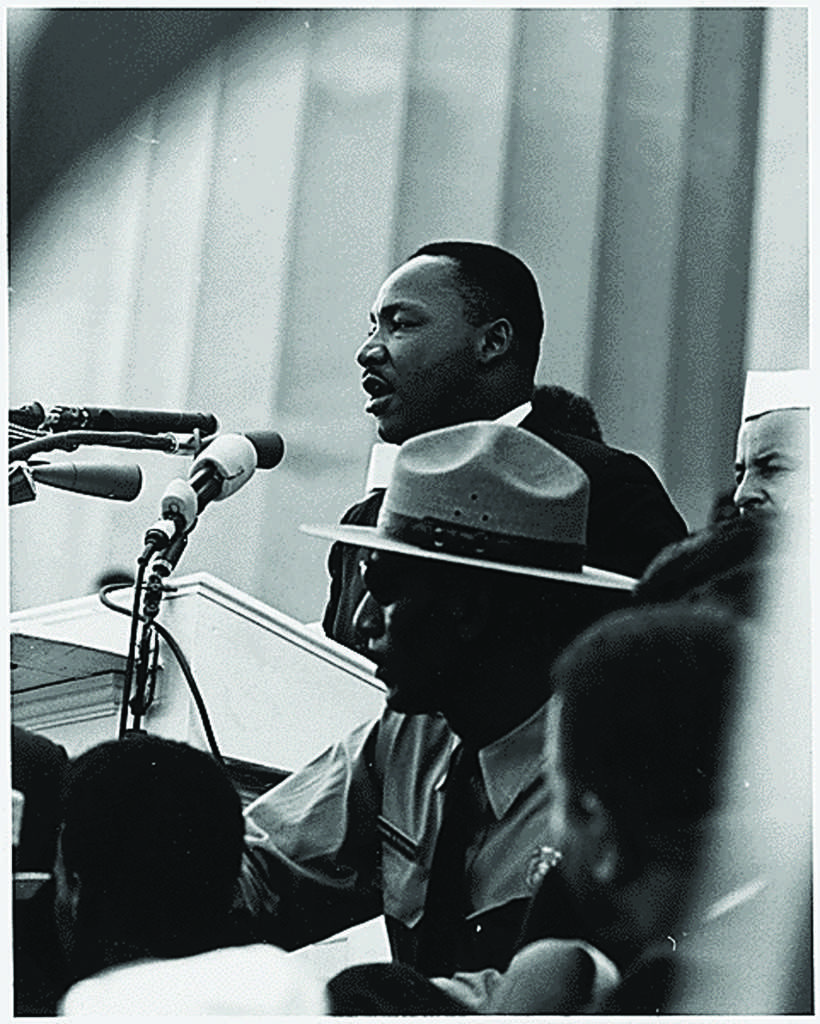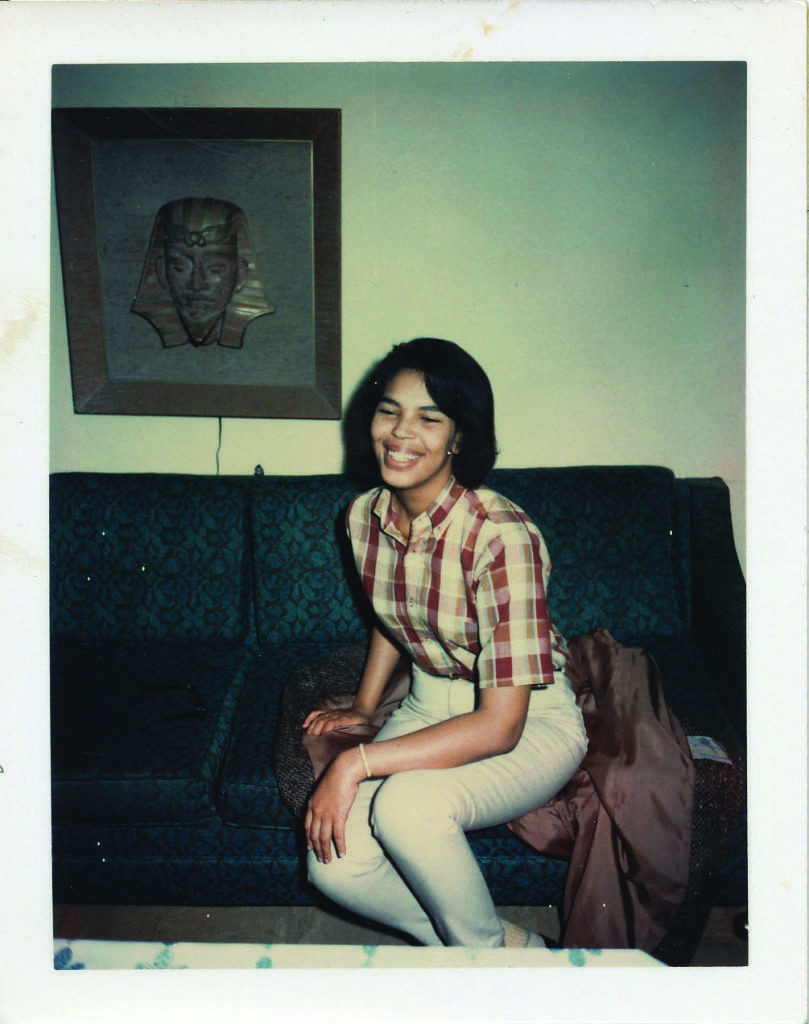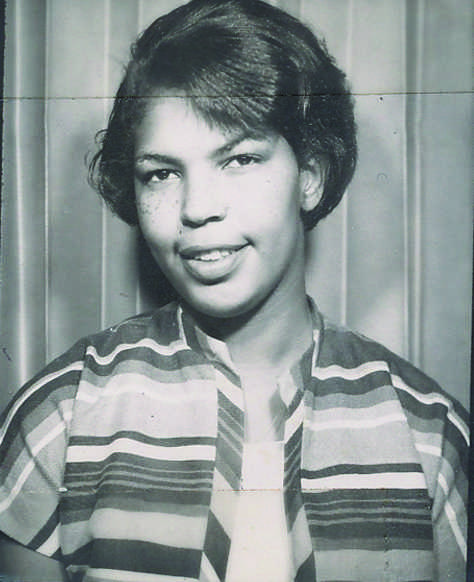Despite the searing heat of that July day, Soldier Field was crammed to capacity. An anxious crowd restlessly awaited the moment at which Martin Luther King, Jr. was to emerge on the field below to address the crowd of thousands above. Among the mass of people was a 21-year-old Donna Rogers-Beard.
“It was electrifying,†she recalled.

The year was 1966. This was also the year that Martin Luther King, Jr.’s protests began travelling northward, one of the stops being in Chicago, Illinois, the largest city in the midwest.
Rogers-Beard was only one of the herd of thousands of protestors lining the streets of Chicago that sizzling summer day.
She was participating in what would later be known as the March on Chicago (the Chicago Freedom Movement), one of many protests that would enable the Civil Right Movement to gain both national attention and support.
But this was not Rogers-Beard’s first experience with the Civil Right Movement. Earlier in the 60s, Rogers-Beard joined protestors across the country in support of the student sit-ins protesting segregated lunch counters at Woolworth’s.
“During that time I was participating in demonstrations in support of the sit-ins … like the one at Woolworth’s, and I believe there was also one going on in Tennessee, at that time, and in Chicago. We were demonstrating outside, asking people to boycott Woolworth’s,†Rogers-Beard said. “And I was a senior in high school out there with my little picket sign … We were protesting against Woolworth’s and any other counter that was segregated anywhere in the United States.â€
About one month following the March on Chicago, on another summer day, nearly a quarter-million other people gathered on the National Mall in Washington, D.C.
There they were addressed by Martin Luther King, Jr., who then delivered the most iconic speech of the entire Civil Rights movement, and perhaps of the 20th century. Rogers-Beard lamented that she had missed the March on Washington, where Dr. King made his famous “I Have a Dream†speech.
In it, King spoke the words that would reverberate through history for the next 50 years and beyond. He declared, “I have a dream that my four children will one day live in a nation where they will not be judged by the

color of their skin but by the content of their character.â€
In the years since King’s speech, according to Rogers-Beard, King’s dream has not yet been recognized by the country as a whole.
“[People think] it’s about, let’s be happy, and hold hands, and sing kum-ba-yah, and be friends, and as long as we say hello to each other, and smile, and play basketball, and sit in classes together, then we’re going to be fine. No,†she said defiantly. “There’s some harder realities that were born in the history of this country.â€
Some of these harder realities, she believes, involve the stark contrast in wealth between white, hispanic and black Americans.
“It’s shocking,†she said. “The median net worth of households, all of the wealth that you have, what you can turn into cash tomorrow, for white America, in 2009, it was $113, 149,†she said. For other groups, it was substantially lower, just over $6,000 for Hispanic Americans, and only about $5,500 for African-American families.
“Those are the issues we don’t talk about,â€Â Rogers-Beard said. “[It’s] serious reality, and it’s an economic reality.â€
Growing up in Chicago, Rogers-Beard doesn’t remember experiencing very much discrimination.
“I’ve been very, very fortunate, in this life,†she said. “One time, though, as a child, I was old enough to remembernow the segregated train-cars, because I would go and visit my great-grandparents, in Tennessee. My mother would say we didn’t want to eat the food on that train … because it wasn’t good. So she would pack a very, very, nice lunch instead.â€
As a result of the Civil Rights movement, however, the quality of the food available to any individual on a train is no longer dependent upon the individual’s race. Unfortunately, the color of one’s skin still affects many aspects of individuals’ lives.
Although many of the forms of public segregation changed years ago, the accessibility of polling places to African-Americans might soon deteriorate due to a recent decision made by the Supreme Court of the United States.
This decision repealed certain aspects of the Voting Rights Act, the reasoning of the Supreme Court being that these parts were both outdated and therefore irrelevant. This may allow certain states to pass “voter-ID†laws, (requiring that people show some form of identification in order to reach the polls), in turn possibly making it more difficult for some African-Americans to reach

them.
“It’s a slippery slope,†Rogers-Beard said. “I don’t understand why [the Supreme Court] would, in any way, open up the chances of people being discriminated against in their right to vote.â€
Rogers-Beard believes that Martin Luther King, Jr. would react negatively to the Court’s decision. “I think [he] would condemn it. He would absolutely condemn it. This is something that was fought very, very hard for, and it’s turning back the clock. It makes no sense.â€
For many still fighting for equality, they believe Martin Luther King’s dream has not been accomplished by the country as a whole, and, that the fight for civil rights is still an ongoing process. Rogers-Beard agrees.
“I think too often,†she said, “it’s deeply ingrained in our culture to define black folks by the worst and white people by the best, which is the definition of racism. And I think that’s still going on. We see it in hiring practices, we see it in police profiling and we see it in a whole lot of other stuff.â€
In Clayton, however, she feels differently.
“Clayton immediately … desegregated its schools following the decision in Brown v. Board of Education, and … I think we’ve absolutely been in the forefront with things like that. Clayton has a legacy to be proud of.â€
The struggle for the social elevation of African-Americans is a battle that has been fought for hundreds of years. It’s a battle that is, unfortunately, ongoing. The dream of Martin Luther King, Jr. may not have been completely realized, but its achievement, like all social progression, will take time. “But, we’re getting better,†Rogers-Beard said. “We’re certainly much better than we used to be.â€
Nodding, she added, “We’re definitely moving in the right direction.â€
Â







